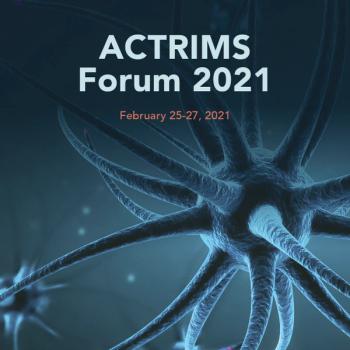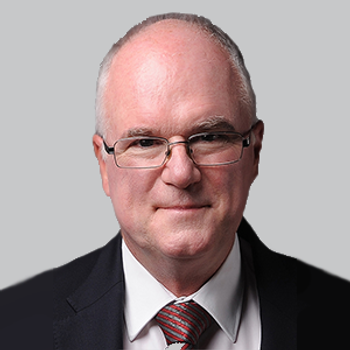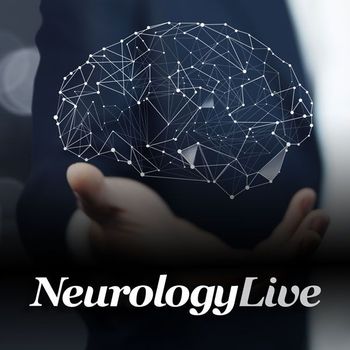
The recommendation stems from recently published topline data which demonstrated a clinically meaningful treatment response compared to placebo but failed to meet statistical significance.

Marco Meglio, Assistant Managing Editor for NeurologyLive, has been with the team since October 2019. Follow him on Twitter @marcomeglio1 or email him at [email protected]

The recommendation stems from recently published topline data which demonstrated a clinically meaningful treatment response compared to placebo but failed to meet statistical significance.

The authors expanded upon the notion that nonadherence to oral DMTs is more nuanced than simply missing doses.

The authors noted that future studies evaluating the time course of fatigue in patients with multiple sclerosis are needed.

Higher concealment behavior for patients with multiple sclerosis was associated with higher anxiety, but not depression.

The authors concluded that longitudinal optical coherence tomography measures may be sensitive to changes in cognitive function and may be useful for monitoring neuroprotective therapies.

The authors concluded that this approach may be applied in fatigue management treatment protocols, without increasing symptoms, in patients with multiple sclerosis.

The effect of cladribine on CD8+ T lymphocytes varied by age, with steady increases shown in the younger population whereas there were fluctuations observed in the older group.

Tavapadon’s rare combination of efficacy and minimal adverse effects may indicate a step forward in the treatment of Parkinson disease.

The global head of Development and External Affairs-Neuroscience at Janssen Pharmaceutical provided his expectations for the upcoming ACTRIMS Forum.

The duo from Cleveland Clinic discussed their recently initiated study which will evaluate the neuroprotective features of home-based intervention in high-risk individuals for Alzheimer disease.

Factors such as previous emergency department visits, hypertension, and tobacco use disorder were related to future migraine-related emergency department visits.

Investigators noted that empirical work is needed to determine if change from baseline, fixed time point assessments, and responder definitions, or other approaches optimize power and sensitivity to change.

The breakthrough designation gives BrainQ access to the new Medicare Coverage of Innovative Technology pathway.

Overall, variants within known ALS-linked genes are of potential clinical importance for 42% of patients, according to the study authors.

Investigators identified no additional benefit nor harm from the use of low-dose alteplase to treat patients with lacunar acute ischemic stroke compared to other subtypes of AIS.

The duo from Vanderbilt University discussed the lack of awareness for functional seizures, their differences in treatment, and what needs to change about their current management.

The director of the Lou Ruvo Center for Brain Health and neurologist at Cleveland Clinic discussed a recently initiated study that will look at the FDA-approved cancer drug lenalidomide for the treatment of Alzheimer disease.

Researchers observed statistically significant improvements of the EDSS score along with a majority of patients showing no new enlarging or gadolinium-enhancing MRI lesions.

Using the largest existing cEEG data set, researchers identified seizure chronotypes at multiple timescales, noting that circadian and multidien seizure cycles are equally strong and highly prevalent.

ACI-12589 aims to become the world’s first diagnostic tool for assessing brain alpha-synuclein pathology in patients with Parkinson disease.

AMT-130 is uniQure’s first clinical program focusing on the central nervous system incorporating its proprietary miQURE silencing technology platform.

The director of the Dartmouth Epilepsy Program and chairwoman of AES 2020 discussed some of the major topics from the previously completed annual meeting and where epilepsy research is trending.

The proportion of patients treated with prednisone and the prednisone dose tended to be lower in the rapid-tapering group at 15 months compared to slow-tapering arm.

The Genio system offers bilateral stimulation of the hypoglossal nerve branches, which may lead to potentially greater airway opening for patients with obstructive sleep apnea.

The duo from Vanderbilt University shared background on their recently published study that found novel associations between functional seizures, cerebrovascular disease, and other psychiatric disorders.

The eXciteOSA device is a daytime therapy that uniquely targets the root cause of snoring and mild obstructive sleep apnea by using electrical currents to stimulate and improve muscle function in the mouth and tongue.

Lisa Belter, MPH, director of research analytics at Cure SMA, discussed a recently published study on the rising costs of living for patients with spinal muscular atrophy.

The company also plans on submitting an application to a PDAC contractor for the mmRNA appliance to be added to the Center for Medicare and Medicaid Services’ list of approved sleep apnea appliances.

The director of the Massachusetts General Hospital ALS Care Center discussed the greatest needs in ALS research and why focusing on genetics can play a big role into understanding the disease course.

Study data showed that 43% of patients with obstructive sleep apnea were referred to sleep specialist physicians for ongoing management by a primary care provider.